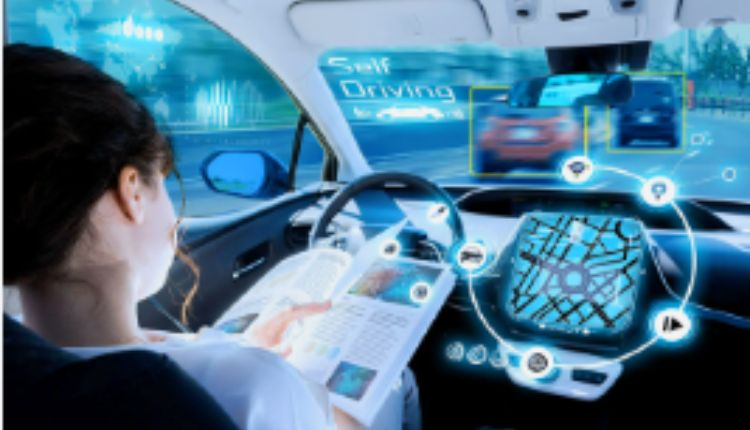The automotive industry is undergoing a profound transformation, driven by technological advancements and shifting consumer expectations. Business Intelligence (BI) has emerged as a critical tool for navigating this dynamic landscape, enabling companies to make data-driven decisions that enhance efficiency and competitiveness. But what exactly does BI entail in the automotive sector, and how will it shape the industry in 2025? This article explores the role of BI, its key applications, and its impact on automotive businesses, presented clearly for those new to the concept.
Understanding Business Intelligence in Automotive
Business Intelligence refers to the technologies and processes that collect, analyse, and present data to support informed decision-making. In the automotive industry, BI transforms raw data from manufacturing, sales, and customer interactions into actionable insights. By leveraging tools like dashboards, predictive analytics, and reporting systems, companies gain a comprehensive view of their operations.
BI systems integrate data from various sources, such as supply chain logistics, production lines, and market trends. For instance, a manufacturer might use BI to monitor inventory levels in real time, reducing delays and costs. In 2025, the adoption of BI is expected to grow, with global spending on analytics projected to exceed £15 billion in the automotive sector alone, according to industry forecasts.
Key Applications of BI in Automotive
BI supports a wide range of functions in the automotive industry, from optimising production to enhancing customer experiences. Here are five primary applications:
- Supply chain management for streamlined logistics.
- Predictive maintenance to reduce vehicle downtime.
- Customer behaviour analysis for targeted marketing.
- Production efficiency tracking to minimise waste.
- Market trend forecasting to anticipate demand.
These applications enable companies to address challenges proactively and capitalise on opportunities.
Driving Efficiency in Manufacturing
Manufacturing is a cornerstone of the automotive industry, and BI plays a pivotal role in optimising it. By analysing data from production lines, BI tools identify bottlenecks and inefficiencies. For example, real-time monitoring can detect equipment failures before they occur, saving time and resources. A study by McKinsey found that predictive maintenance powered by BI can reduce maintenance costs by up to 30%.
BI also supports just-in-time inventory systems, ensuring parts are available precisely when needed. This reduces storage costs and enhances production agility. In 2025, as electric vehicle production ramps up, BI will be essential for managing complex supply chains and meeting tight delivery schedules.
Enhancing Customer Experiences
Understanding customer preferences is vital in a competitive market Business. BI enables automotive companies to analyse purchasing patterns, feedback, and demographic data to tailor offerings. For instance, a dealership might use BI to identify which car models appeal to specific age groups, informing targeted promotions.
The following benefits highlight BI’s impact on customer engagement:
- Personalised marketing campaigns based on data insights.
- Improved after-sales support through predictive service needs.
- Enhanced customer retention via loyalty programme analysis.
These capabilities foster stronger relationships and drive brand loyalty.
Supporting Strategic Decision-Making
BI empowers executives to make informed strategic choices. By providing a clear view of market trends, competitor performance, and internal metrics, BI tools help leaders allocate resources effectively. For example, a car manufacturer might use BI to decide whether to invest in hybrid vehicles based on rising consumer demand for sustainable options.
In 2025, BI will increasingly incorporate artificial intelligence to enhance predictive capabilities. This allows companies to anticipate market shifts, such as the growing popularity of autonomous vehicles, and adjust their strategies accordingly.
The Role of Specialised Software in BI
Implementing BI requires robust software solutions tailored to the automotive industry’s needs. Leasing IT software is one such tool, enabling leasing companies to analyse financial data, track vehicle usage, and optimise contract terms. This supports better risk assessment and customer satisfaction.
Similarly, Automotive BI solutions provide industry-specific analytics, such as fleet management insights and sales forecasting. These tools integrate seamlessly with existing systems, ensuring a smooth transition to data-driven operations.
Challenges and Considerations
While BI offers significant benefits, it comes with challenges. Data integration can be complex, especially when dealing with legacy systems. Additionally, ensuring data security is critical, as automotive companies handle sensitive customer and operational information. Investing in skilled teams and secure platforms can mitigate these issues.
In 2025, the focus will be on simplifying BI adoption through cloud-based solutions, which offer scalability and easeස
The Future of BI in Automotive
The automotive industry is poised for further innovation, with BI at its core. By 2025, advancements in cloud computing and AI will make BI more accessible, enabling even small businesses to leverage data insights. Industry analysts predict that companies adopting BI will see a 20% increase in operational efficiency over competitors.
For businesses seeking to stay ahead, partnering with experts in Automotive BI solutions is a strategic move. Tailored platforms ensure that data is not only collected but also translated into meaningful strategies.
Partnering for Success
Business Intelligence is reshaping the automotive industry by providing the insights needed to thrive in a fast-evolving market. From optimising manufacturing to enhancing customer experiences, BI enables companies to make smarter decisions and deliver greater value. As the industry embraces trends like electric and autonomous vehicles, BI will be indispensable for navigating complexity and seizing opportunities.
At WislaCode, we specialise in developing multifunctional mobile and web applications that accelerate business growth and redefine user experiences. Our full-stack capabilities cover data storage, backend, middleware, frontend architecture, design, and development, delivering customised solutions like Leasing IT software to meet your unique needs. Embrace BI to unlock your business’s potential and drive success in 2025.






